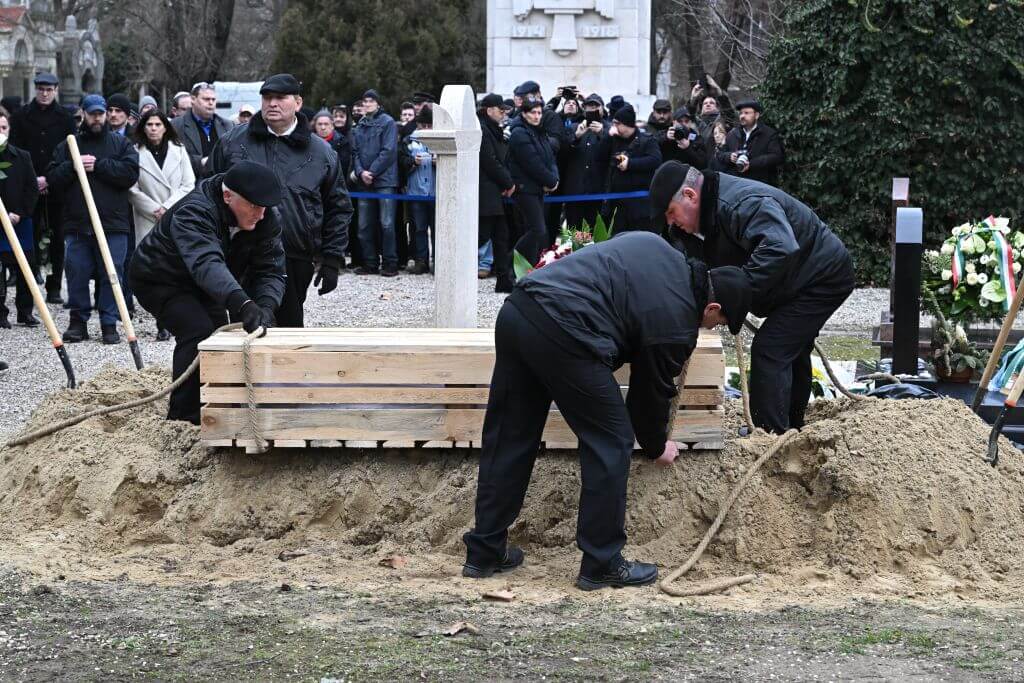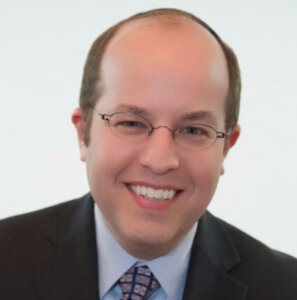Why are Jews buried in a plain pine coffin?
A rabbi writes that Judaism sees the simple pine box as the great equalizer

Mourners gather in Budapest on January 9, 2025, at the funeral of Agnes Keleti, the world’s oldest Olympic champion and a Holocaust survivor, who died days before her 104th birthday. Photo by Attila Kisbenedek/AFP via Getty Images
Jewish burial customs reflect a fundamental belief: that in death, as in life, all people are equal. That’s why, for centuries, Jews have been buried in simple wooden caskets — most often, the proverbial plain pine box.
The practice is rooted in Genesis, where God creates mankind from the dust of the earth. In Jewish tradition, the soul lingers near the body after death but finds peace only once the body is returned to the earth. A wooden casket, unlike metal or other materials, allows for this natural return.
But why insist on simplicity? If the body ultimately decomposes, wouldn’t a more expensive wooden casket—mahogany, perhaps—be just as suitable? The answer speaks not only to how we honor the dead, but to what we value in life.
A number of years ago, while visiting Los Angeles, I stayed at a hotel across from a well-known talent agency. Early Saturday morning, I glanced out the window and saw a stunning sports car pull up. . Flashbulbs popped. Cameras clicked. A celebrity stepped out, and the photographers swarmed.
Then, something odd happened.
Once the actor walked away, the cameras kept snapping — this time at the car. I realized that the media frenzy wasn’t for the person inside but for the luxury surrounding him.
In life, we are often judged by our trappings. But in death, Judaism strips all that away. The simple pine box is an equalizer, a reminder that status and wealth don’t follow us to the grave. What matters is not what we accumulate but what we give.
From taker to giver
We are born into the world with our hands closed. When we die, our hands are open.
A baby begins life as a recipient. Hands clenched. Whether through parents, doctors, nurses, or the care of others, a newborn is dependent on others to live. The essence of life is learning how to develop from being a taker to being a giver. In the words of Winston Churchill, “We make a living by what we get, but we make a life by what we give away.”
Judaism calls us to orient our lives toward generosity, not self-glory. A friend of mine named his charitable trust the “Conduit Fund” — a simple but profound acknowledgment that wealth and blessings are meant to be passed on. Through life, we learn how to give and move from being self-centered to other-centered.
The austerity of the casket beckons us as well to reorient our lives towards what truly matters. Each morning, we can ask ourselves:
- Am I leading my life in a way that nourishes my best self or am I focused on feeding the misperceptions of others?
- When I wake up in the morning, do I ask what do I want or what does God want of me?
- What can I do today to elevate the lives of others around me?
A plain pine box is more than a burial custom. It’s a final lesson, urging us to strip away the distractions and focus on what truly endures: the impact we have on others, and the legacy we leave behind.
















